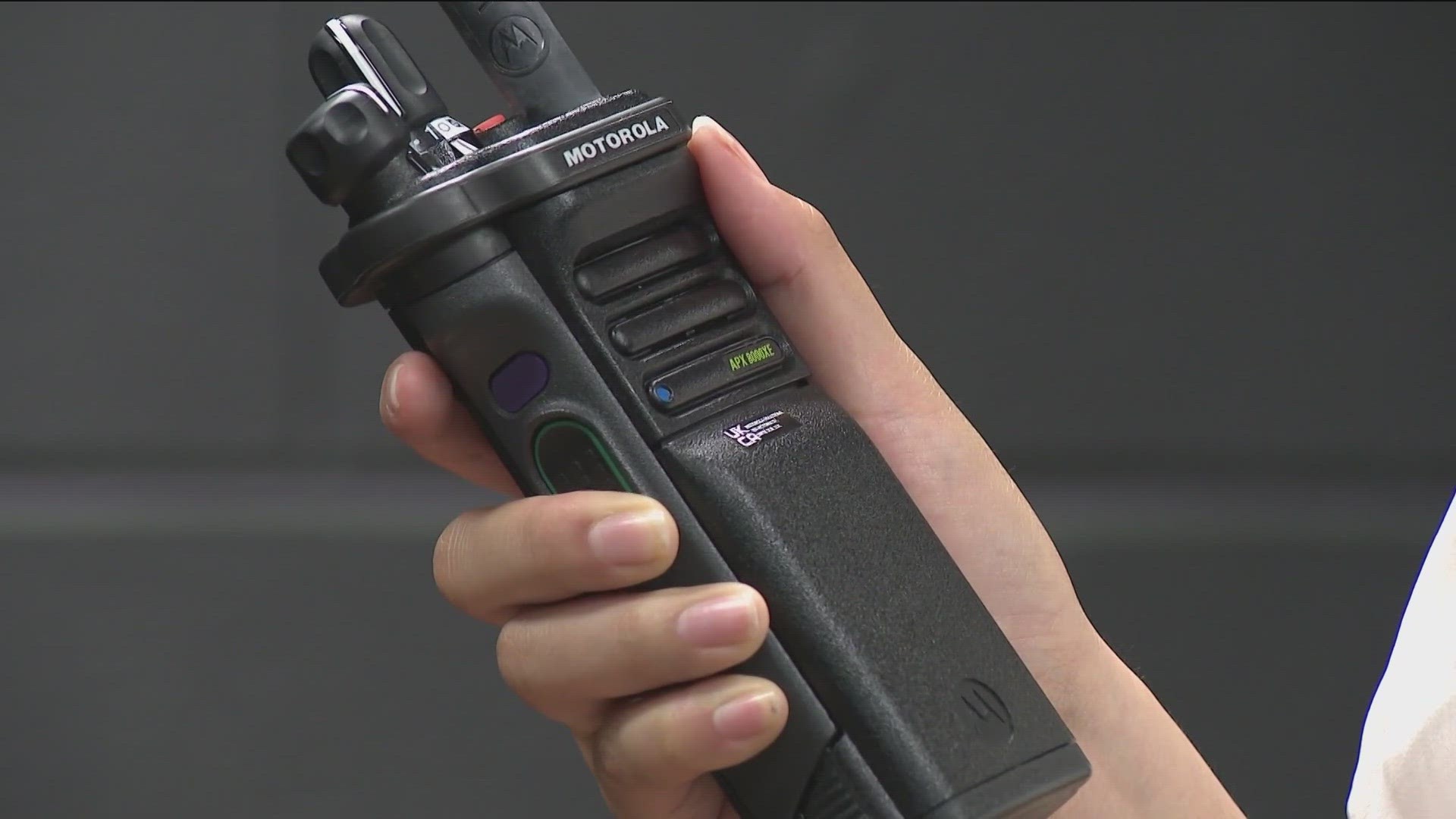AUSTIN, Texas — First responders are here to protect and serve, do no harm and save lives. And they say restricting public access to their radio scanners is now necessary to preserve safety.
Starting Monday, the public will no longer be able to listen to scanners in Austin. The city's public safety departments – including police, fire and EMS – are switching to an encrypted radio system.
“We want to provide a greater layer of protection for our officers and for community members,” Austin Police Department (APD) Asst. Chief Lee Rogers said. “There's so much information that can get put out over the radio. So, it protects and limits the availability of information that people can hear.”
Rogers said personal information – including names, addresses and where someone is – is important information to protect.
For example, say police are investigating a manhunt for a suspect.
“If we're looking for some violent offenders, we don't want to give that individual an advantage over our officers for those types of operations and we're looking for somebody,” Rogers said.
Rogers said people have transmitted on APD dispatch radios before, tying up communication for emergencies.
Austin-Travis County EMS (ATCEMS) Division Chief Michael Broadwater said private information has gotten out before.
“We've had multiple incidents where, you know, several larger incidents or newsworthy events where somebody shows up on scene or follows a unit extremely close – tailgates,” he said.
Broadwater said that can endanger personnel and patients. He said the decision to encrypt the radio feeds has been a long time coming.
“It’s basically the standard in most larger cities for public safety communications,” he said. “It's been in the works for a while now. We have a few select channels that we could that are encrypted, but, for the most part, the majority are unencrypted.”
But will encrypting the radios affect transparency with the public? Rogers said nothing will change in the way APD communicates.
“Whether that’s social media, different means in which to put information out – we've always done that. We will continue to put that out," he said. "Anytime that we have an officer-involved shooting or other critical incidents, we're releasing that radio traffic, that body-worn camera. So we're not hiding anything."
KVUE asked if media outlets that use police scanners to get news out to the public faster – including ourselves – will also be blocked from access or if we will get access to scanners for reporting.
“We're currently looking at different options, both with city legal and with PIO [public information officers] about how we're going to go forward with communicating,” Rogers said. “We've always been committed to communicating with the media through various outlets, and we're going to continue that relationship going forward.”
KVUE also reached out to the Austin Fire Department (AFD). It told us in a statement that the traffic radio for AFD can still be heard publicly. The department also said it supports this change to ensure first responders' safety.

